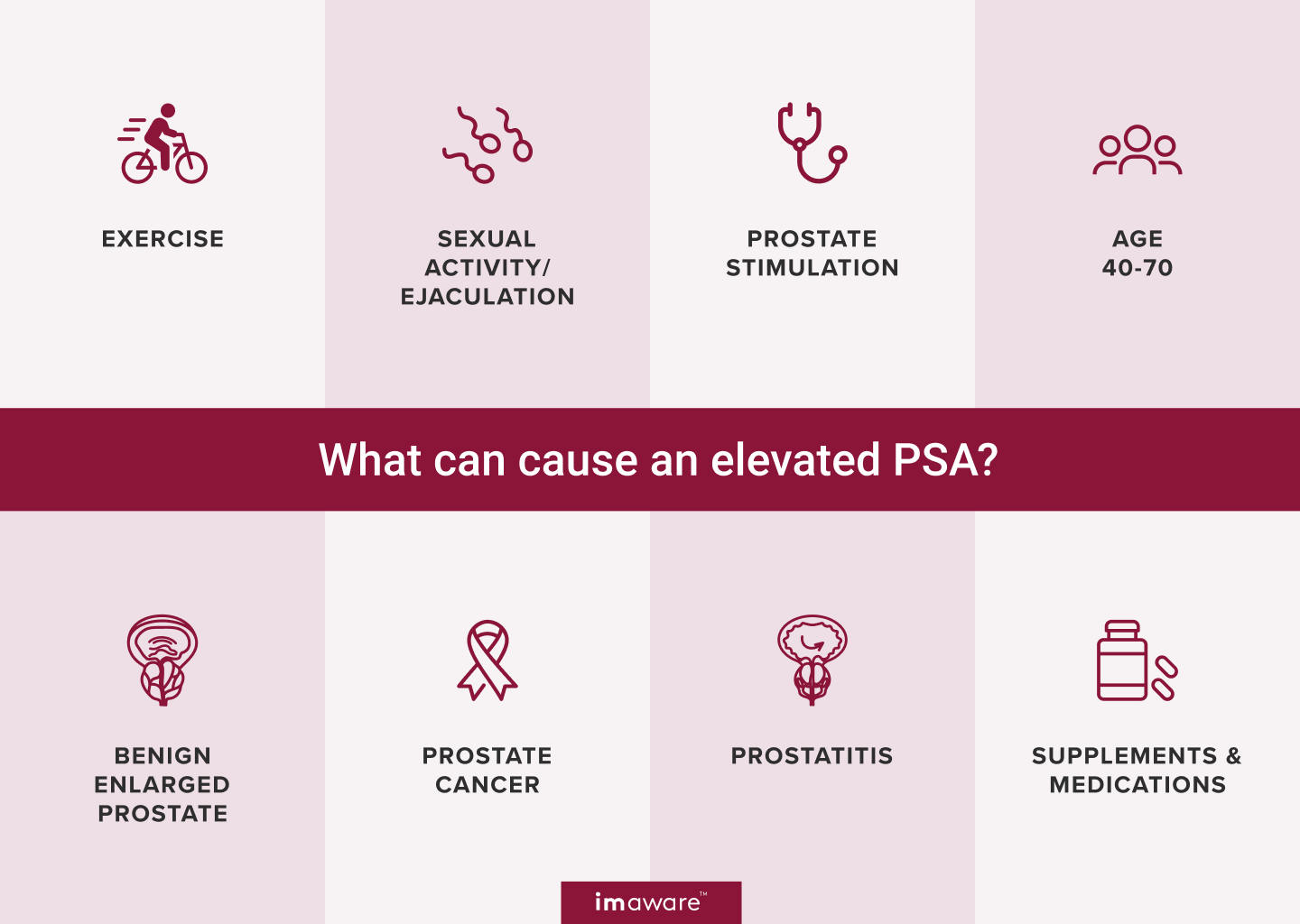Getting tested for Prostate Specific Antigen (PSA) can give anyone a little anxiety. It’s perfectly natural to have a lot of questions before you take a PSA blood test. How do you prepare for a PSA test? Is there anything I can do to make sure my results are accurate? What do the results mean?
What is a PSA Blood Test?
The PSA blood test is one of the methods that physicians use to detect prostate cancer. The test is considered an effective start to the prostate cancer screening process and a useful method to monitor the effectiveness of treatments used for to those with prostate cancer.
Who Should Get a PSA Test?
The current US Preventive Services Task Force states that men of an average risk of prostate cancer between the ages of 55 to 69 should consider being screened using a PSA test. However, other individuals at a higher risk might want to be considered for earlier screening including:
- Those who are overweight
- Older men — those over 65 — as PSA rises over time, starting at age 50
- Those with a family history of prostate cancer
- African American men
- Smokers
- Those living a sedentary lifestyle, or those who eat an unhealthy diet
To learn more about screening for prostate cancer, visit Prostate Conditions Education Council.
How Do You Prepare For a PSA Test?
You do not need to fast from food or drink before taking a PSA test. There are currently no foods or beverages to avoid before taking a PSA test. While some foods might be linked to prostate conditions, no scientific evidence links the consumption of one food to elevated PSA levels. There is no need to avoid certain foods, coffee or alcohol before taking a PSA test.
What Should I Avoid Before a PSA Test?
Can I work out before I take a PSA test?
While physical activity in general might help maintain a normal prostate, avoid heavy exercise directly before your PSA. Avoid exercise for a few days before your PSA test. Even bicycling, riding motorcycles or ATVs, or riding horses have been shown to elevate PSA slightly for a short period of time..
Can I have sex before I take a PSA test?
No. You should abstain from sexual activity — anything that includes ejaculation — for at least 48 hours before the test. A recent ejaculation might cause a slight rise in PSA levels.
What about supplements and medications?
The following supplements or medications may have an affect on your PSA levels and should be discussed with your doctor. They may raise or lower your PSA and might not create a reliable test result:
- Chemotherapy drugs
- Statins
- NSAIDS (nonsteroidal anti inflammatories)
- Urinary health medications
- Carninte, fenugreek, pomegranate, saw palmetto, the herb PC-SPES, lycopene, and phytoestrogens.
Can alcohol or coffee consumption skew results?
Alcohol and caffeinated drinks are not established risk factors for prostate cancer and will not affect PSA levels. However, it is understood that heavy alcohol drinking could cause a small risk of more aggressive forms of prostate cancer. The bottom line here is that alcohol, caffeine and smoking do not cause false-positive elevations of PSA levels.
I have a urinary infection, is that a problem?
Please consult your doctor if you have a urinary tract infection or if you are taking antibiotics for a urinary tract infection. Please also consult a physician before taking a PSA test if you have recently suffered a pelvic injury or have had prostate or urinary tract surgery.
What Can Cause Elevated PSA Levels?

What Makes the imaware™ PSA Test Unique?
While we use the same total PSA biomarker that other tests use, our at-home imaware™ PSA test is unique as it can be done in the comfort of your own home. It can also be ordered without a physician’s note, as imaware™ has a team of physicians that approve all orders and results for patients. Your PSA test results are delivered to a secure patient portal and are easy to download for your next doctor appointment. Getting a PSA test is easy with imaware™.
Results of a PSA Blood Test
When your imaware™ test results are ready, you’ll receive an email prompting you to log into your secure patient portal to view your results report. Your report will give you a detailed look at your total PSA biomarker. Not only will it give you a numerical value, but also a qualitative look into your data, taking into account any provided risk factors.
What if my PSA levels are considered high?
If your test shows an increased PSA level, please consult your physician for further diagnosis. To help give you an idea of what your physician may do next to help you, here's a quote from Dr Jeffery Herz, MD of Halo Diagnostics:

"Typically, an abnormal PSA level will result in a consultation with us which often involves obtaining a family history of prostate cancer, a complete medical/surgical history including current medications, a discussion regarding voiding status, evaluation of previous PSA levels (PSA history), consideration of further evaluation including possible repeat PSA tests and the need for possible prostate biopsy"
Jeffery Herz, MD | Board Certified Urologist, HALO Dx
If you’re interested in learning more about the innovative diagnosis and treatment techniques for prostate cancer, visit our partners at Halo Diagnostics to learn more about multiparametric prostate MRI (mpMRI) and laser focal therapy.














.svg)




